D-Day: In the words of the BBC journalists
- Published
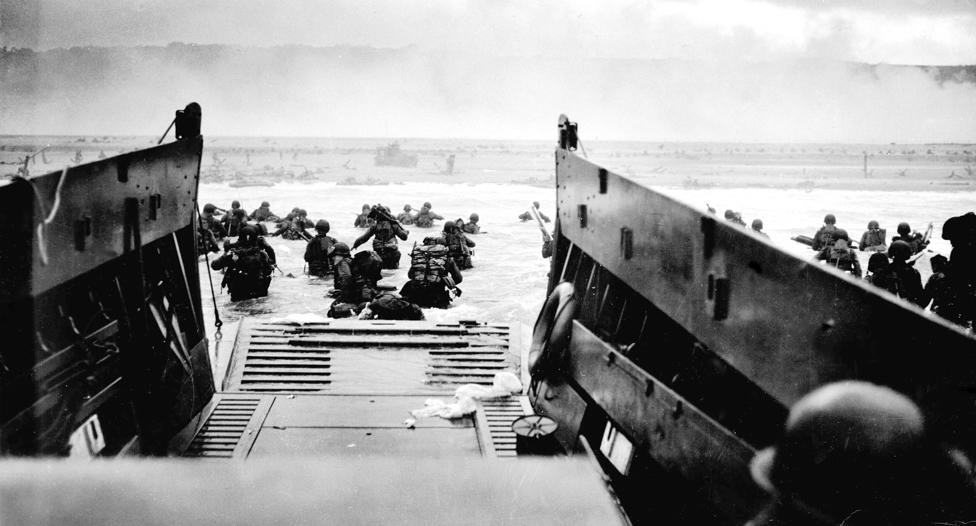
Seventy years ago today, one of the biggest military operations in history took place, as thousands of Allied troops landed on the French coast. Below are extracts from the BBC's reports of D-Day.
Description of aircraft taking off
"This is Richard Dimbleby speaking..."
The first part of D-Day involved the dropping of 24,000 British, Canadian and US troops in Nazi-occupied France, shortly after midnight. In this audio clip, and in the script below, Richard Dimbleby, the BBC's war correspondent and one of its most famous journalists, witnessed the very first aircraft take off from southern England on the night of 5 June 1944.
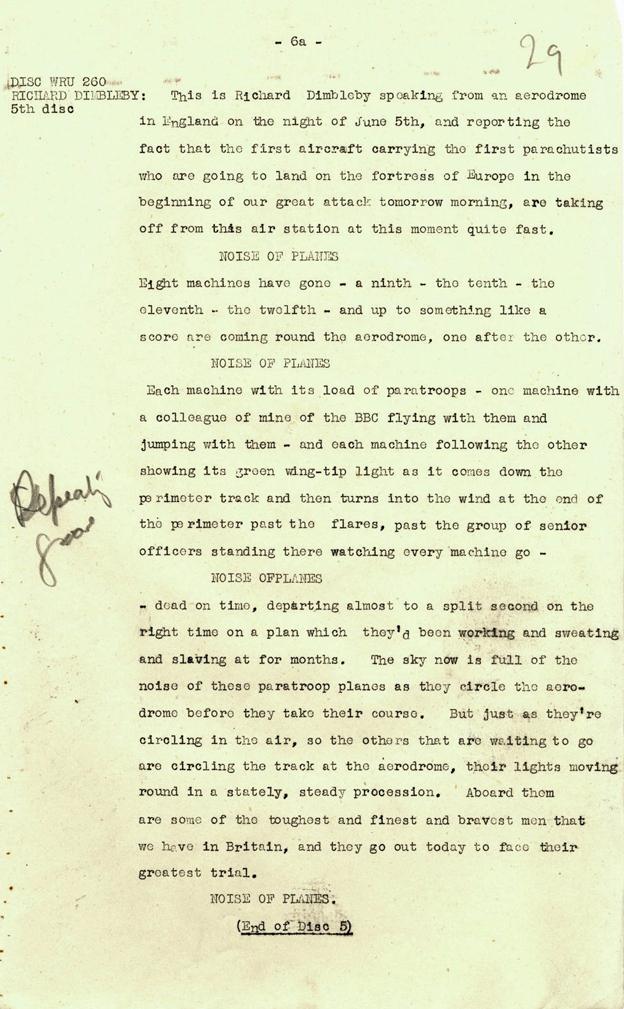
"This was the first combat jump for every one of them"
BBC war correspondent Robert Barr was one of four reporters who followed General Dwight Eisenhower from D-Day until the end of World War Two. Here, he records the anticipation as paratroopers prepare to board a Douglas C-47 destined for France.
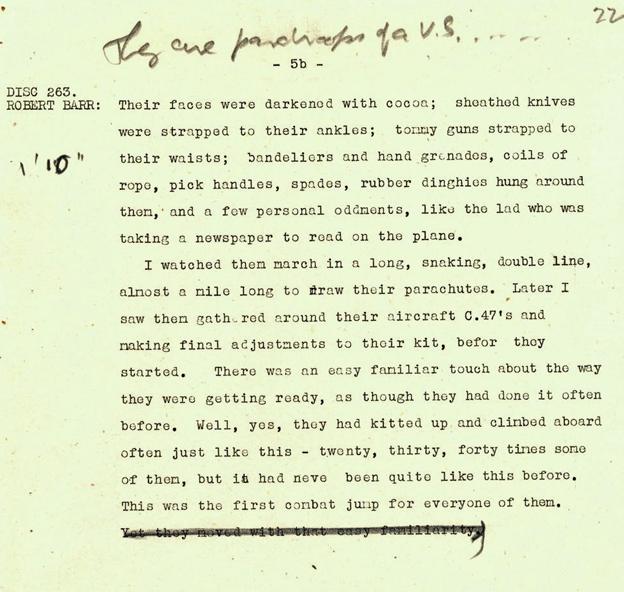
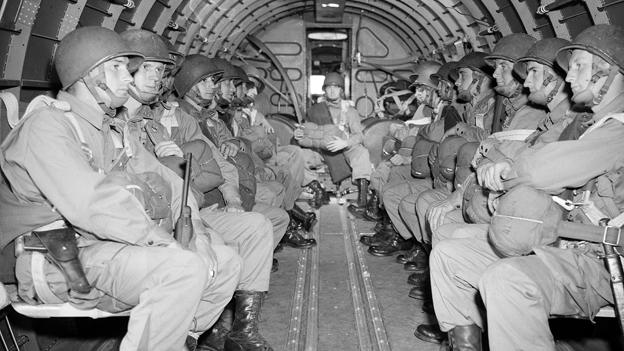
US paratroopers aboard a military plane en route to the French coast for D-Day
"D-Day has come..."
"The next time our feet touch dry land it will be on the soil of Europe"
Allied infantry started to land on the Normandy coast at 06:30. At 08:00, the BBC announced that "a new phase of the Allied Air Initiative has begun". At midday, the radio announcer John Snagge (pictured) was able to go further and announced that "D-Day has come".
The dispatch below, filed by Robert Dunner from an American headquarters ship, described the atmosphere as troops waited to land in France.
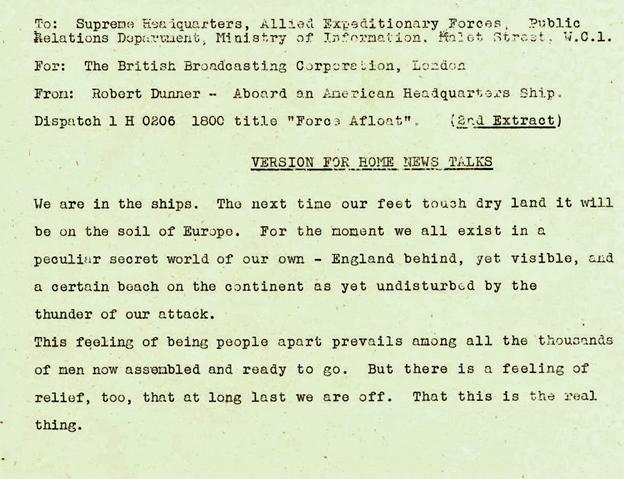
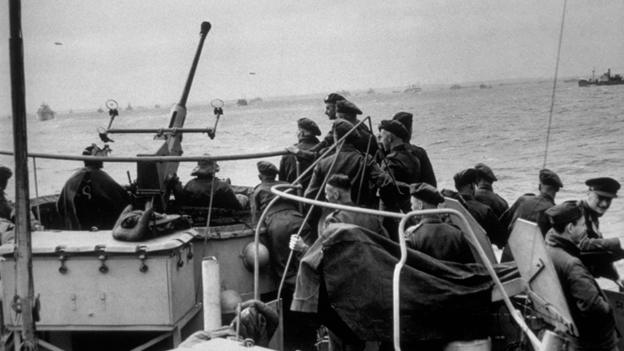
Report from plane above the invasion
"There was a very loud explosion"
The invasion of Normandy was the largest amphibious assault ever launched. It involved five army divisions in the initial assault and over 7,000 ships. In addition there were 11,000 aircraft. Colin Wills painted the scene from above, in a plane flying over the English channel. Below, the veteran BBC reporter Howard Marshall described the moment when one boat of troops landed.
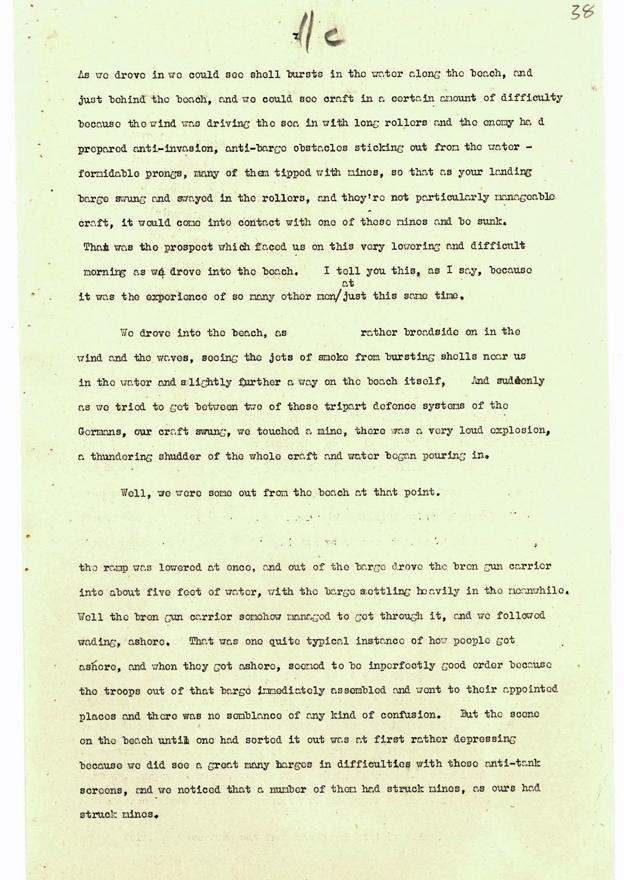


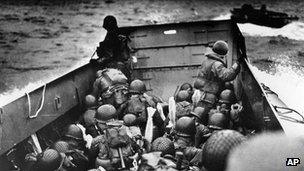
What was D-Day?
On 6 June, 1944, British, US and Canadian forces invaded the coast of northern France at Normandy.
The landings were the first stage of Operation Overlord - the invasion of Nazi-occupied Europe, and were intended to bring World War Two to an end.
The invasion of Normandy was the largest amphibious assault ever launched. Over 150,000 troops landed on D-Day.
By the end of D-Day, the allies had established a foothold in France. Within 11 months Nazi Germany was defeated.
•D-Day: How was the biggest ever seaborne invasion launched?
•D-Day timeline: The beginning of the end of WW2

Paratroops landing in France
"When it comes, it sure comes"
In this clip, Alan Melville reported from the Normandy beach-head as Allied paratroopers were dropped in to provide support.
In the script below, American reporter Tom Traynor described the situation as infantry tried to make it off the beach and avoid German shelling.

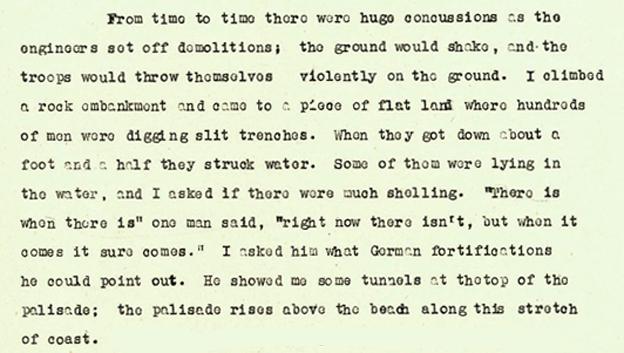
"The new battle of Europe"
Richard Dimbleby took up the story once more, this time towards the end of D-Day, from within France. British and Canadian troops had managed to take three of the five beaches - Juno, Gold and Sword - without heavy casualties, and pressed on towards the town of Caen (although it would be more than a month before they took it).
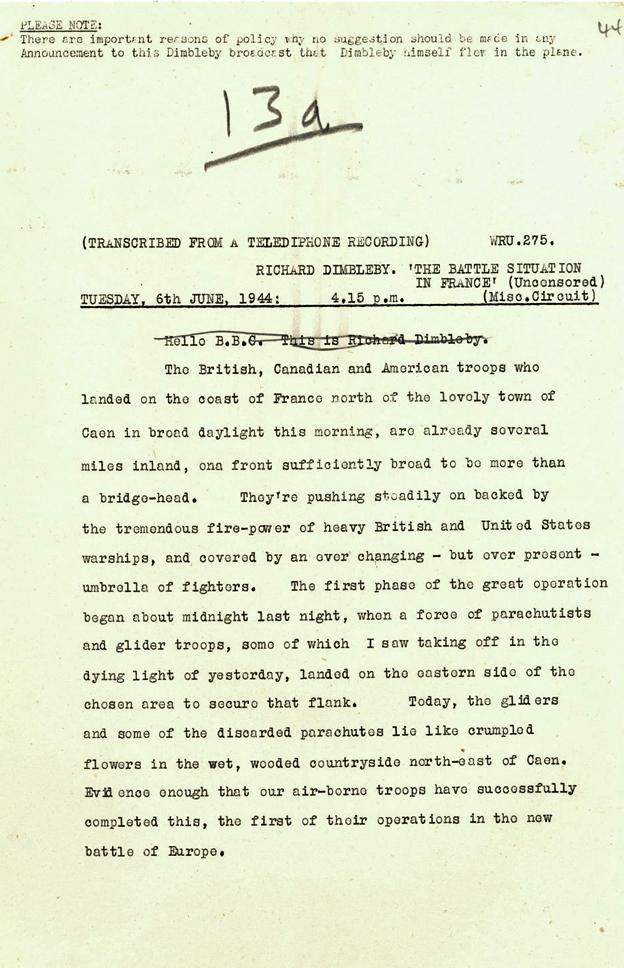
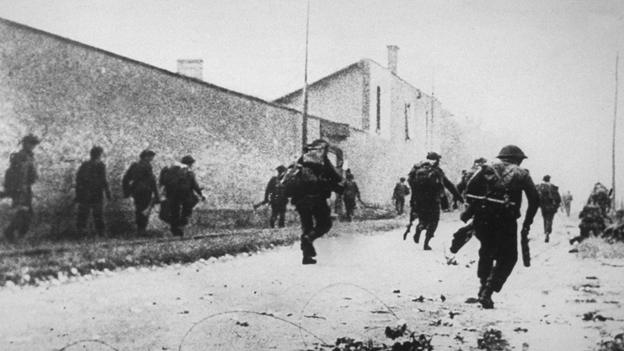
British commandos in Normandy set out to capture a Nazi gun site
"The King has broadcast a national call to prayer"
By the end of the day it was clear that D-Day had been a success, even though there had been 3,000 fatalities on the Allied side - mostly airborne troops, and those who landed at Omaha beach, where US infantry were hit by heavy German fire. This was how Frank Phillips announced the news on the BBC Home Service bulletin at midnight.
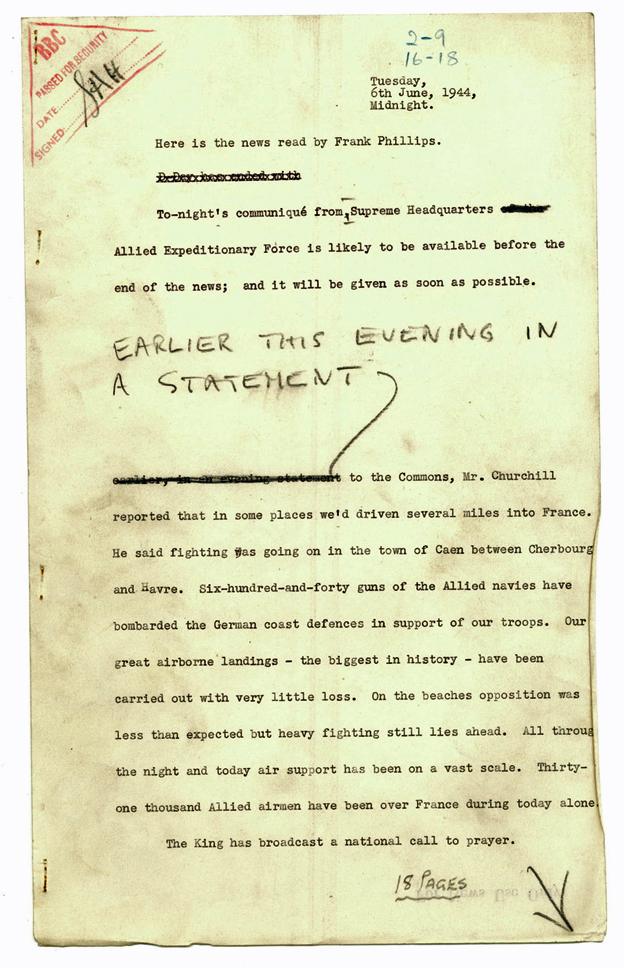
Assembled by Ben Milne and Vanessa Barford
Radio scripts reproduced courtesy of the British Library
See the original BBC radio news scripts from 1944 and hear them being read by Benedict Cumberbatch, Patrick Stewart and Toby Jones, on the BBC Radio 4 website
Subscribe to the BBC News Magazine's email newsletter to get articles sent to your inbox.